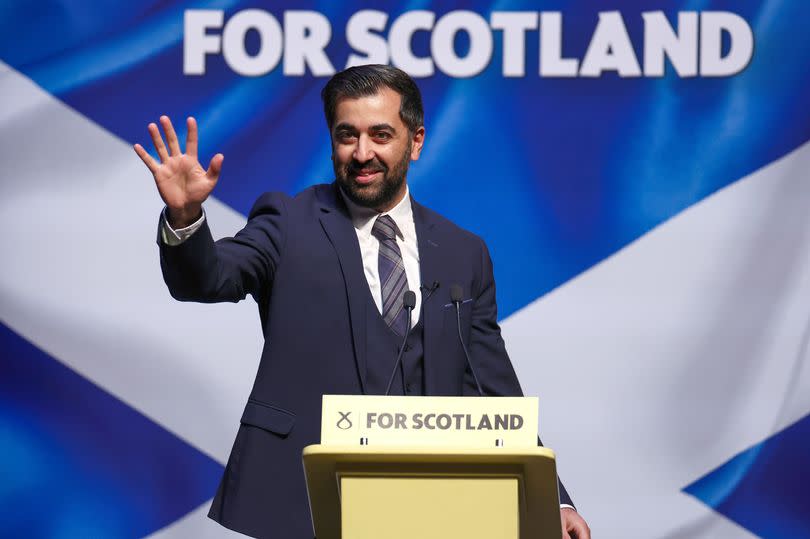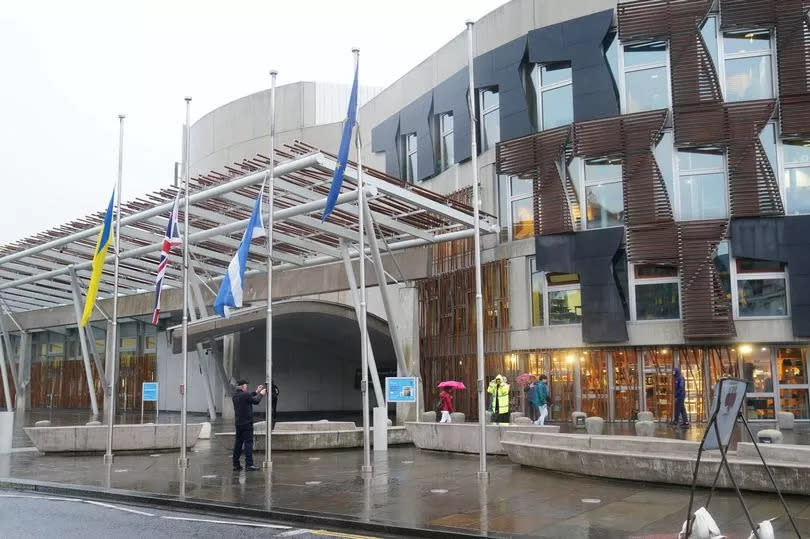Humza Yousaf resigns as Scotland’s First Minister - what happens next

Humza Yousaf is set to resign as Scotland’s First Minister ahead of forthcoming confidence votes.
Mr Yousaf had been battling for his political survival after terminating the powersharing deal between the SNP and Scottish Greens on Thursday. He was facing a vote of no confidence, tabled by the Scottish Conservatives, while Scottish Labour had tabled one of no confidence in the Scottish Government as a whole, with both expected to take place this week.
Announcing his resignation at a press conference at Edinburgh’s Bute House on Monday (April 29) he said: “After spending the weekend reflecting on what is best for my party, for the government and for the country I lead, I’ve concluded that repairing our relationship across the political divide can only be done with someone else at the helm.
“I have therefore informed the SNP’s national secretary of my intention to stand down as party leader and ask that she commences a leadership contest for my replacement as soon as possible.”
He will continue to serve as First Minister in the interim until a suitable replacement is found. With a new vacancy at the top of Scottish politics, the pressing question has to be what happens next at Holyrood.
Will the votes of no confidence that had been expected to take place this week still go ahead?

The Scottish Conservatives had tabled a motion of no confidence in Mr Yousaf as First Minister. But his resignation from the position before a time for the vote could even be set means that this vote will no longer take place.
However, Scottish Labour's motion of no confidence could still go ahead because this is a motion of no confidence in the Scottish Government as a whole.
Will Mr Yousaf's resignation spark a Scottish Parliament election?
It could but not quite yet. A Scottish Parliament election would only be held if no new first minister can be found within the next 28 days.
As the SNP are by far the largest party in Holyrood, the onus is now on them to find a new leader who can replace Mr Yousaf and work with other parties in a minority government. That new leader would need to secure the backing of MSPs in a vote in Holyrood before they could formally take over.
The SNP's tally of 63 MSPs, however, leaves them just short of a majority in the 129-member Parliament, meaning politicians from other parties would need to be persuaded to either vote for an SNP candidate, or at least abstain in the ballot, for them to be successful.
If no new first minister can be selected within the next 28 days, the Scottish Parliament would then be forced to hold a snap election.
What now for the Scottish Greens?
The ending of the Bute House Agreement means they are out of the Scottish Government, with co-leaders Patrick Harvie and Lorna Slater having being ousted from their ministerial posts. However, they could still play a crucial role in the coming days and weeks.
While the Greens made clear they could not support Mr Yousaf in the vote of no confidence against him as first minister, the party has yet to decide how its seven MSPs will vote in the motion of no confidence in the Scottish Government as a whole.
The support of the Green MSPs could also prove to be central in a new SNP leader getting the support needed in the Scottish Parliament to be elected as first minister.
When the SNP leadership contest took place last year, the Greens made clear they could not work with Kate Forbes, as a result of her opposition to gender recognition reforms and after she announced she would not have voted for same sex marriage had she been an MSP at Holyrood at the time.
It is therefore unlikely they could vote for her to be first minister, but they might be open to working with others in the SNP.

 Yahoo News
Yahoo News 
